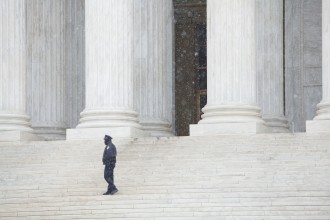
June 24, 2017
Gnireenigne
Reverse engineering (now does the title make sense?) is a common and legitimate business practice. The federal Defend Trade Secrets Act even specifically excludes reverse engineering from the definition of misappropriation: see 18 USC §1839(6), “the term ‘improper means’ . . . (B) does not include reverse engineering.”
While the Uniform Trade Secrets Act — some form of which is in force in 48 states and the District of Columbia — does not expressly mention reverse engineering, the Comments to Section 1 adopt the Restatement of Torts position that “Discovery by ‘reverse engineering’, that is, by starting with the known product and working backward to find the method by which it was developed” is not an improper means of acquiring a trade secret, providing that the acquisition of the product was by a fair and honest means.
Thus, if an unpatented product is acquired legally, and there is no enforceable promise not to reverse engineer, the owner of the product is free to analyze and copy the product. Some courts have enforced “no reverse engineering” clauses.1 After Impression Products, Inc. v. Lexmark International, Inc, however, such restrictions may not be enforceable beyond the first purchaser, and in any event, at least some courts have found “no reverse engineering” clauses to be unenforceable, for example where they interfere with the fair use of computer software.2
A business that includes reverse engineering as part of its product development process should be careful not to cast its own activities in a false light. Emails and internal documents that refer to reverse engineering efforts as “knocking off” or similarly disparaging terms may unfairly portray the company and its products should these documents come to light at trial. A business should instead accurately characterize its efforts as developing non-infringing competitive products, of which reverse engineering is just one part.
Notes
[1] See K&G Oil & Tool Service Co. v. G&G Fishing Tool Service, 158 Tex. 94, 314 S.W.2d 782, 785-86 (1958) (enforcing a negotiated agreement not to reverse engineer); Pioneer Hi-Bred Int’l, Inc. v. DeKalb Genetics Corp., 51 U.S.P.Q. 1987 (S.D. Iowa 1999) (enforcing “bag tag” restrictions on use of seed for research purposes)
[2] See Vault Corp. v. Quaid Software Ltd., 847 F.2d 255 (5th Cir. 1988).




































